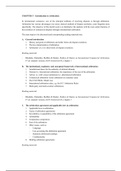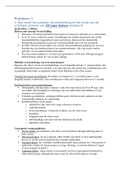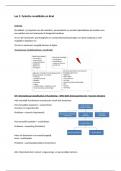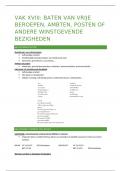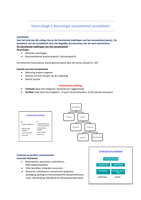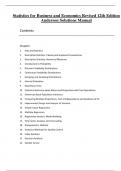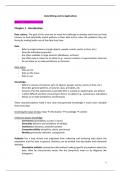Samenvatting
Summary Week 5 – Introduction to Arbitration
Contains: Week 5 tutorial notes, brief readings summaries That week tutorial and Q&A sessions were about introduction to arbitration and lasted half an hour, Q&A session notes are same as tutorial ones so they are not repeated. Readings summary contains brief summaries and mostly paragraph's ti...
[Meer zien]
